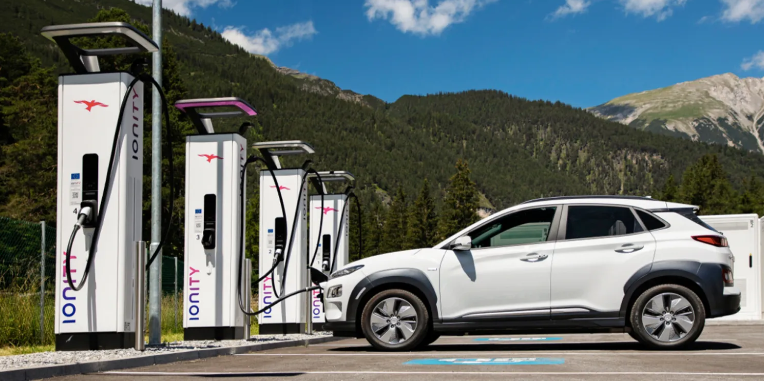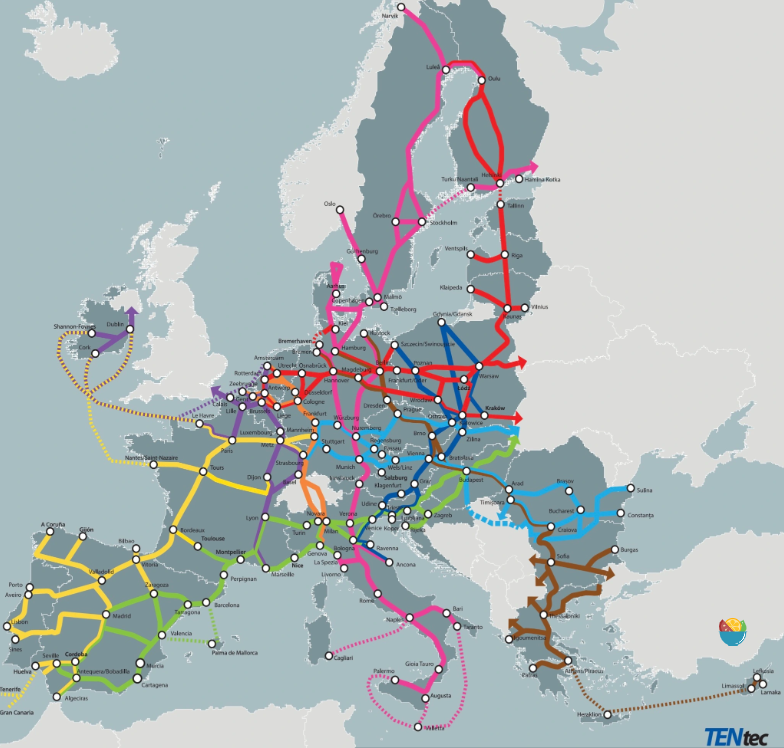
The European Parliament adopted a set of rules today to improve the EV charging experience, focusing on easier payments, charging speed, and availability. In a separate move, the UK government is also currently proposing new rules for easier payments and charging station reliability.
Both sets of rules stand to improve the EV charging experience for Europeans and possibly the rest of the world.
Public charging has gotten a lot of attention lately as electric car sales continue to grow rapidly. Charging station operators are rushing to install chargers along major routes, trying to keep up with increasing demand from a ballooning EV fleet.
This has led to some issues in various territories, with confusing payment systems, less-than-desired charger reliability, and a lack of high-speed charging along some routes.
EU will mandate 400-600 kW charging every 60 km
Today, the European Parliament made a big move to improve the experience by approving new rules as part of its “Fit for 55” package, intended to reduce emissions by 55% by 2030. These regulations focus on expanding access to fast EV charging networks by mandating minimum speeds and distances between charging stations.
The rules cover Europe’s “TEN-T core network,” the main arterial road networks that cover all of Europe, comparable to the US interstate highway system.

Europe will mandate that, along these primary routes, chargers with at least 400 kW output must be placed at least every 60 km by 2026. In 2028, the minimum output will increase to 600 kW.
There are additional rules for truck and bus charging, with charging points required every 120 km at an output of 1.4-2.8 MW, depending on the road.
Beyond these charge station mandates, the new rules also mandate simpler charger payments. As-is, some networks require subscriptions or app downloads. But under these rules, customers must be able to pay with cards or contactless devices, and prices must be displayed to the customer.
Unrelated to EV charging, the EU also mandated cleaner maritime fuels, targeting an 80% reduction in greenhouse gas by 2050 and a requirement to use shore power while in ports. Both rules passed with massive majorities in the European Parliament.
UK wants to mandate 99% charging station reliability
Separately, the UK government has proposed rules focusing on charging experiences within the UK.
The headline feature of these rules is a mandate for 99% charging station reliability in the UK. According to a 2017 survey, 15% of EV charging stations in the UK were out of service, decreasing to 8% in 2019. The UK wants to lower this number to 1%.
Requiring 99% reliability could have benefits outside of the UK, as charging station manufacturers and station operators will have to step up their game and develop protocols for better reliability. The more territories that focus on reliability, the more likely these benefits might also bleed over to the ones that don’t.
The Netherlands has led the way in this respect with a 99% reliability target of its own, and the UK government specifically pointed to the Dutch as a reason for its 99% target.
This reliability focus comes with a requirement that charging station operators must provide a 24-hour helpline for when things go south.
In addition to the reliability mandates, the UK rules would adopt payment and database requirements that are similar to the EU rules, mandating per-kWh pricing, price displays, contactless payments, and live data on charge point availability. However, they only apply to fast chargers of 8 kW or above – slower public AC chargers are exempt.
These UK rules haven’t been officially adopted yet, but once they are, they will take one year to go into force. So the UK might get its rules before the EU if the government moves quickly enough.
Electrek’s Take
This is a good step forward, not just for Europeans but for electric car drivers everywhere. Big moves like this tend to spread, as can be seen with the similarities between EU and UK rules on charging and the UK’s specific callout of the Netherlands in its reliability target. So perhaps some of these requirements will percolate to other areas, and maybe we’ll get a little more charger reliability here in the US as a result.